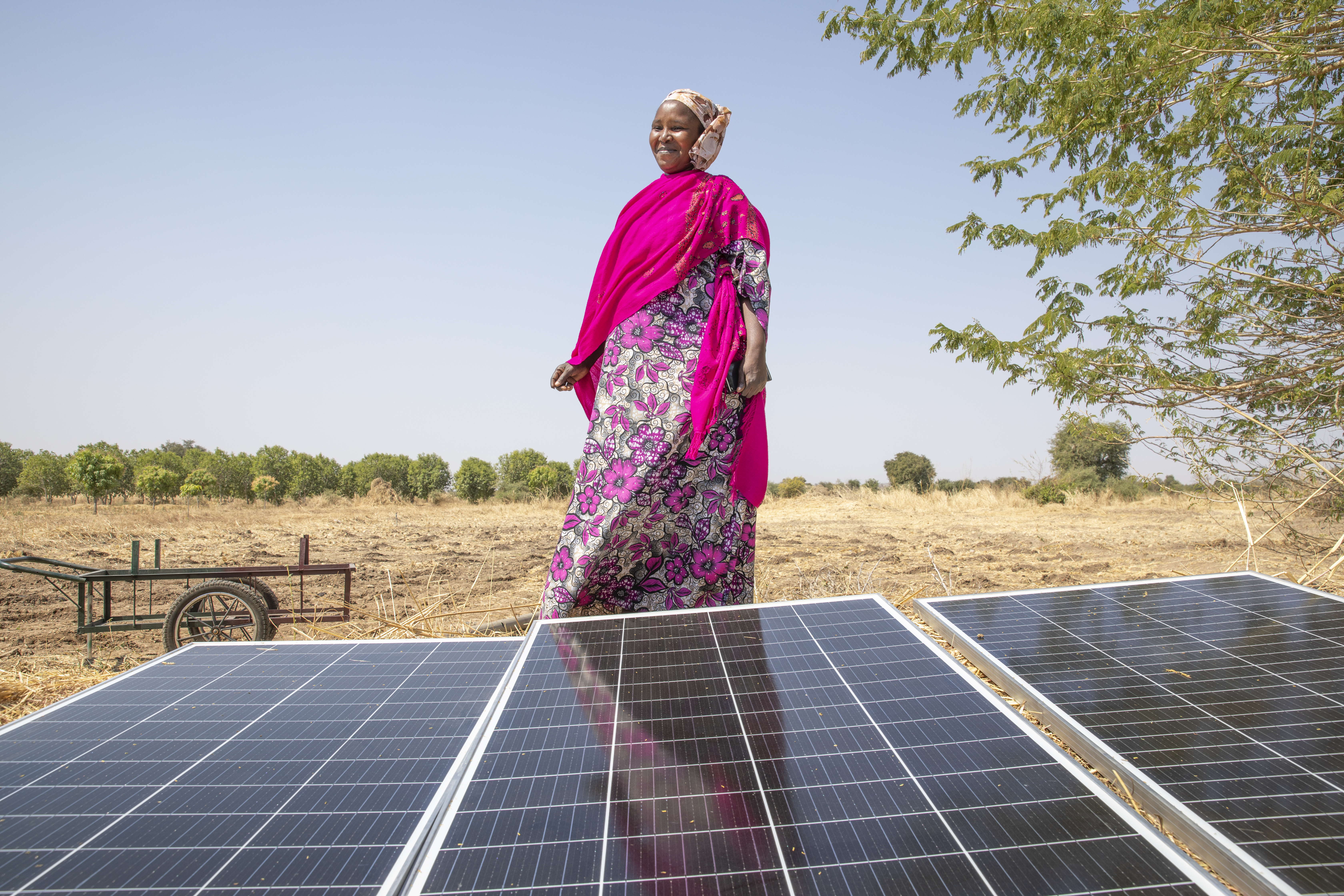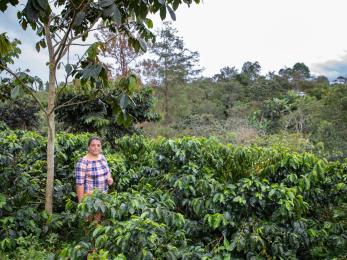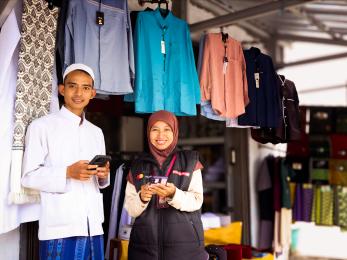A nightmare ended, a dream realized: How one woman is rebuilding after Boko Haram
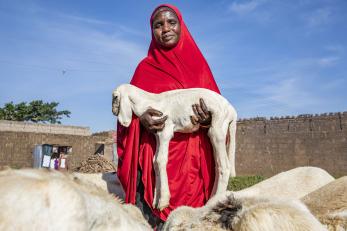
Jummai’s daily routine starts with feeding her children. From there, she knits and works on whatever project she has on her hands that day — currently, a blue and yellow hat for a one-month-old infant. Then, she feeds her children before going back to knitting. She knits to make extra money for her family.
This wasn’t always her daily routine.
Jummai is a mother of seven children whose ages range from 8 to 33-years-old. She’s also a widow. After losing her husband, she took on multiple jobs to feed her children. Farming, distributing water, selling firewood, among others.
As the sole caretaker for her family, Jummai struggled to make ends meet. She was often forced to have her children make the long trek for water every morning, making them late for school. For a while, this was her daily routine.
Then Boko Haram infiltrated nearby villages, sporadically and frequently attacking her village of Biu, Nigeria along with others. Life as Jummai knew it came to a sudden, unimaginable halt.
“I thought I was dead and gone,” she says, recalling the day they first arrived.
Living through a nightmare
Some days during Boko Haram’s occupation of her village, running simple errands like going to the store to get food was impossible for Jummai.
“[The insurgence] affected us so much. I lost [my 15-year-old son] and many in my village were killed. It was difficult to eat and survive at that time,” Jummai says. “We couldn’t sleep or go out to look for food. It was like a nightmare.”
When she was able to buy food, she had to buy it on credit. The occupation drastically inhibited her ability to work since she couldn’t tend to her family farm or knit — leaving her completely unable to make any kind of living. Her children became malnourished from going days at a time without food.
“Most times, I looked at my children, I looked at their faces, and they were hungry, but there was absolutely nothing I could do,” Jummai says.
When the crisis was at its worst, we delivered Jummai emergency food assistance that lasted her and her family two months.
She received a livelihood grant after the Boko Haram crisis ended as a part of our early recovery efforts, which she used to buy knitting needles, yarn and other supplies to open her first business.
Building new livelihoods
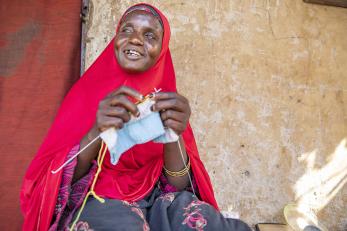
Boko Haram’s last attack on Jummai’s village was near the end of 2017. Throughout 2018 and the beginning of this year, Jummai has been working on opening another business. One that will provide sustainable income for her family and the community for years to come.
Jummai had always been around livestock — her family had a livestock business when she was a child. She knew first-hand how a livestock business could offer consistent food, income and security.
She persuaded the local Village Savings and Loan Association (VSLA), a Mercy Corps-supported group that provides funding, banking and financial literacy services, which she chairs, to invest in the proposed business. They did.
Now, Jummai and the VSLA are waiting for the livestock — primarily cattle and goats — to grow large enough to sell.
The livestock business provides food, milk and financial security to Jummai, the VLSA and other community members. Jummai employs community members to tend to the livestock in the cattle lot and bring them water, while she counts the cattle every morning and night and ensures that everything is going the way it should.
Both of her businesses, knitting and raising livestock, took off. Jummai now has the ability to provide for her family and save to make bigger purchases in the future — something she could not have done before.
“Before, I couldn’t save money, but now I feel better that I can save,” Jummai says.
A family — and a community — transformed
The money Jummai has saved has transformed her life. Through the VSLA, she’s created new friendships and connections in her community. Her businesses bring her consistent income and the ability to save money while giving her children the things they needed to flourish.
Her community is thriving now. The devastation brought by Boko Haram is long out of the hearts and minds of Jummai and her friends, family and neighbors.
“In fact, since the arrival of Mercy Corps things have been so good that we have almost forgotten that Boko Haram ever existed,” Jummai says.
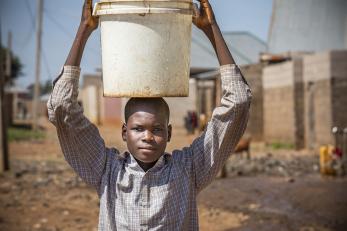
Today, Jummai spends her days tending to livestock, knitting and taking care of her children. They are no longer late to school, thanks to a clean water point we installed closer to her home. Jummai has high hopes for her children as well as herself, wanting to see them complete their schooling and that her business continue to flourish.
“Now that I am happy, I would like to see my children educated, to be prosperous, and I would also like to live in prosperity myself,” Jummai says.
